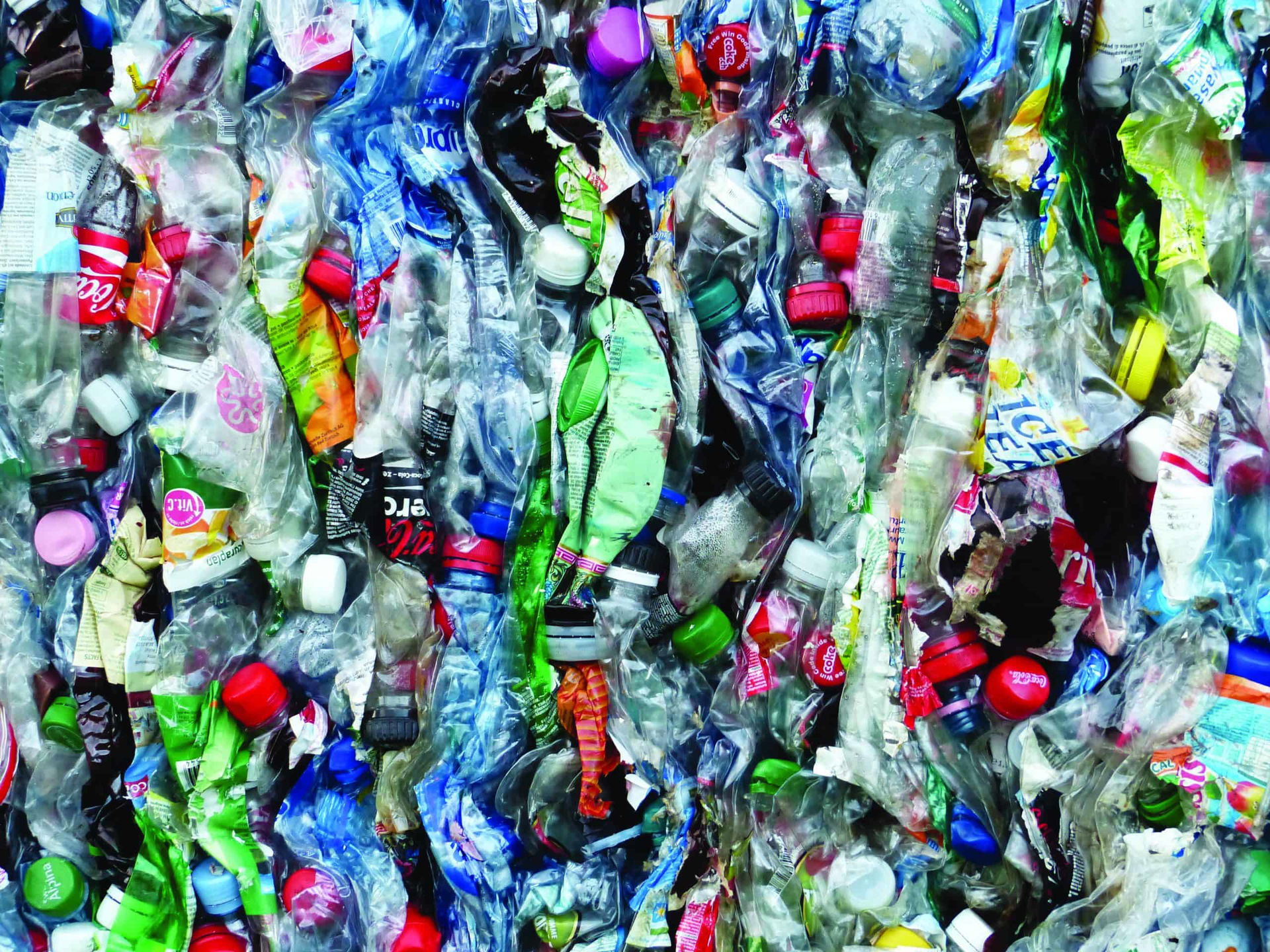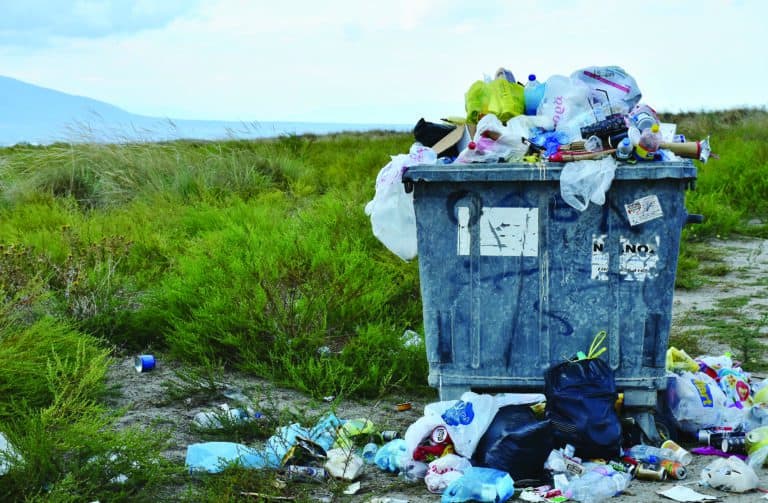What SUP? – The Battle Against Single Use Plastics

We live in interesting times, where, as the banner during one of the recent climate strikes claimed, ‘leaders behave like children and children behave like leaders’. More seriously, how do we, schools and educators, respond to growing concern among our students? How do we respond to the criticism that the education students receive is no longer relevant when the IPCC estimates we only have eight years to avert irreversible climate change? At a recent education conference I attended in Abu Dhabi, it seemed that many educators and school leaders were asking themselves the same question. I hope that the message I was at the conference to convey – that real, student-led change IS possible, as we have proven at Ecolint by eliminating Single Use Plastic (SUP) – can serve as a beacon of optimism and as an example for other schools.
A Plastic-Free Campus
Our “plastic-free campus” journey started in September 2017, when myself and a colleague met up with a recent alumna, Alexis McGivern, who works in the field of sustainability, to discuss how we could engage the school in a more ambitious project to deal with plastics on campus. After some discussion, a bold plan was born. To eliminate Single Use Plastic across the entire campus – and a kind of “manifesto” was written and shared with our Campus Principal, David Woods, and Director General, Dr David Hawley. Whilst they were immediately supportive, we underestimated the scale of the challenge to achieve this stretching goal. We were in for quite a rocky ride!

The first step in our journey was to announce the objective to the whole community. Using our weekly campus newsletter, we outlined what we had in scope: total elimination within six months of unnecessary plastic items like straws, disposable plastic cups, single-use bottles, plastic lids and disposable cutlery, that were made from plastic and designed only to be used once. Whilst we are lucky to have a knowledgeable and engaged community, we reminded them of the serious impact of plastic pollution on marine life, and the knock-on effects for our own health as micro-plastics infiltrate our water supply and food chain.
We pointed out the dissonance with our school’s charter, which highlights our belief in the equal value of all human beings, and the fact that these impacts are most acutely felt by people in the developing world. We also pointed out that the school itself needed to lead the change and act as a role-model, and committed to audit our own use of SUP and to replace it all before asking others to make changes in their habits.
The key next step was to form the team required to make this happen. We quickly identified that in addition to myself as Sustainability Coordinator, we needed to include the Campus Principal, the campus facilities manager, the aforementioned alumna, and most importantly students and their parents. We quickly fielded two surveys and identified that the biggest opportunities to make meaningful change were in rethinking the approach taken at the cafeteria and at the big school events organised by the Parent Teacher Association (PTA). Meetings with both parties quickly led to the commitment to far-reaching measures to eliminate SUP, even though this meant some major changes compared to how things had been done previously.
Some of the steps were relatively easy. Some of the examples are banning the sale of drinks in PET bottles in the cafeteria and vending machines, which incentivised students and staff to bring their own, durable water bottle to school and drink water from the fountains. Others were significantly harder, including finding replacements for the snacks, ice-creams, yoghurts and many other products which arrived at school already wrapped in plastic.
With the support of our catering supplier, Novae, we determined that the only solution was to eliminate these products from the range, and replace them with alternatives that come in either biodegradable or compostable packaging. This had implications for the catering team, such as having to decant large containers of yoghurt into smaller compostable dishes, rather than sell ready-portioned “single serve” yoghurts, but the kitchen team embraced the project with enthusiasm, and found solutions where many people were sceptical one could be found.
One of the key things we discovered along the journey is that while many suppliers offer “biodegradable” packaging, in practice this is not the best solution, as disposal still requires special conditions, most notably a temperature above 40°C, which is rarely met in the disposal chain. Instead we opted, wherever possible, for compostable materials, which break down on their own, similar to food waste, and whilst naturally decomposing also deliver additional nutrients to the soil, which biodegradables do not. The catering team, led by catering manager Philippe Musset, proved to be formidable allies and great supporters of the initiative, and thanks to their unstinting support, we managed to make the deadline and proudly announced the plastic-free campus to be “the new normal” in April 2018, as planned.
Enabling the PTA to be plastic free proved to be one of the biggest challenges. Despite all sharing the vision and wanting to eliminate SUP, the (entirely volunteer) team feared a dramatic increase in their workload as a result of the proposed measures. How, for example, were they going to manage the washing up after the annual kermesse which generates thousands of plates, cups and sets of cutlery?
Taking one problem at a time, and engaging students and PTA members in brainstorming ideas, led to a common vision and shared commitment. The PTA ordered reusable cups, similar to those used at music festivals in Switzerland, which are now sold to guests when they arrive, and which they are encouraged to take home to wash, and to bring back for future events. Individual bottles of soft drinks have been replaced by cans, which are easy to recycle and have less negative impact. Cutlery and plates are now all made from compostable or biodegradable materials. A student-composed “EcoCREW” has been set up which helps out at events, separating waste at an “EcoPoint” (and gaining valuable CAS points towards their IB in the process).
Alexis McGivern, our alumna and muse of the project, took extensive notes and, with the support of “venture philanthropists” the Gallifrey foundation, has built a website, www.plasticfreecampus.org. As well as detailing our journey, this website provides a free and pragmatic tool all schools can use to eradicate SUP. It is our hope that hundreds of schools will follow our example, empowering their students to make a positive change in today’s world. Not only is this good for the planet in the long term, but in our experience has also been enormously positive to build the school community in the here and now, making future sustainability initiatives easier and more likely to succeed.
About the author
Jan Dijkstra is a teacher of mathematics and Sustainability Coordinator at the La Châtaigneraie campus of the Ecole Internationale de Genève. A Dutch national, he has over twenty years experience teaching in international schools in the Netherlands and Geneva.
Find more articles like this here: www.internationalschoolparent.com/articles/
Want to write for us? You can submit an article for consideration here: www.internationalschoolparent.submittable.com
